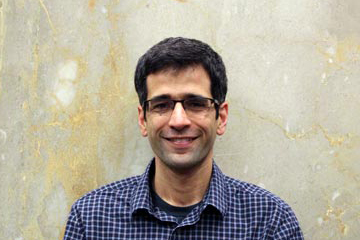Assessing the Causal Impact of Chinese Aid on Vegetative Land Cover in Burundi and Rwanda Under Conditions of Spatial Imprecision
Date Published
Nov 23, 2018
Authors
Robert Marty, Seth Goodman, Michael Le Few, Carrie Dolan, Ariel BenYishay, Daniel Runfola
Publisher
Development Engineering
Citation
Marty, R., Goodman, S., LeFew, M., Dolan, C., BenYishay, A., & Runfola, D. (2018). Assessing the causal impact of Chinese aid on vegetative land cover in Burundi and Rwanda under conditions of spatial imprecision. Development Engineering 4.
Abstract
There has been considerable debate regarding the efficacy of international aid in meeting the dual goals of human development and environmental sustainability. Many donors have sought to engage with this challenge by introducing environmental safeguard and monitoring initiatives; however, evidence on the success of these interventions is limited. Evaluating aid is a particular challenge in the case of donors that do not disclose information on the nature, geographic location, or extents of their interventions. In such cases, new methods that extract and geoparse data on the activities of opaque donors through the manual interpretation of thousands of news and other articles allow us to investigate the impacts of these activities. However, residual spatial uncertainty in these data remains a potential source of bias. In this article, we apply and discuss a Geographic Simulation and Extrapolation (GeoSIMEX) approach to mitigate the spatial imprecision inherent in geoparsed data. In conjunction with GeoSIMEX, we test and contrast multiple approaches to reducing the imprecision of aid, including high-assumption cases in which other covariates (i.e., nighttime lights) are leveraged to allocate aid. In our application, we find that methods which do not account for spatial imprecision find statistically significant relationships between Chinese aid and vegetation change; after accounting for spatial uncertainty, findings are similar for Rwanda and inconclusive for Burundi.
Funding: This work was made possible by the support of the Global Environment Facility, the MacArthur Foundation, the Cloudera Foundation and the College of William & Mary. This work was performed in part using computational facilities at the College of William & Mary which were provided with the assistance of the National Science Foundation, the Virginia Port Authority, Virginia's Commonwealth Technology Research Fund and the Office of Naval Research.
Related Publications
Featured Authors
Robert Marty
Research Assistant
Carrie Dolan
Assistant Professor of Kinesiology and Health Sciences at the College of William & Mary



